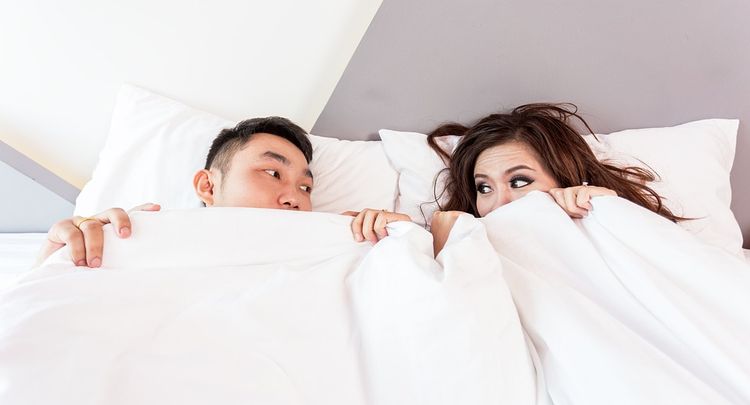Sleeplessness and Mental Health: Understanding the Link Between Insomnia and Anxiety

Insomnia, or sleeplessness, is a common sleep disorder affecting millions of people worldwide. While it is often associated with physical health issues such as sleep apnea or chronic pain, it is essential to recognize that sleeplessness can also take a toll on our mental health. In fact, there is a strong link between insomnia and anxiety, demonstrating the intricate interplay between these two conditions.
Anxiety disorders are among the most prevalent mental health issues, affecting approximately 284 million people globally. Anxiety involves excessive worry, restlessness, and an overall feeling of apprehension. These symptoms, in turn, can lead to difficulty falling asleep or maintaining sleep, resulting in insomnia. The relationship between insomnia and anxiety is cyclical, with one condition often exacerbating the other.
Insomnia disrupts the balance of hormones and neurotransmitters in our brain, including serotonin and cortisol. Sleep deprivation leads to increased cortisol levels, the hormone associated with stress. Elevated cortisol levels, in turn, contribute to heightened anxiety levels. Similarly, the lack of serotonin, a neurotransmitter often linked to happiness and well-being, can contribute to the development of anxiety disorders.
Furthermore, insomnia can impair cognitive functions such as concentration, decision-making, and problem-solving. These cognitive deficits can exacerbate feelings of worry and stress, leading to increased anxiety levels. Additionally, sleeplessness can cause irritability, mood swings, and a reduced ability to regulate emotions, all of which can contribute to anxiety symptoms.
It is essential to note that the link between insomnia and anxiety is bidirectional, meaning that anxiety can also cause or worsen insomnia. This can create a detrimental cycle, with anxiety causing sleep disturbances, and sleep disturbances, in turn, fuelling anxiety. Consequently, both conditions need to be addressed simultaneously for effective treatment.
Fortunately, there are various strategies to manage sleeplessness and alleviate anxiety. One of the most crucial steps is establishing good sleep hygiene practices. This includes sticking to a regular sleep schedule, creating a calming bedtime routine, ensuring a comfortable sleep environment, and avoiding stimulating activities or substances close to bedtime, such as caffeine or electronics.
In some cases, cognitive-behavioral therapy for insomnia (CBT-I) may be recommended. CBT-I aims to modify negative thoughts and behaviors surrounding sleep, helping individuals develop healthier sleep habits and manage anxiety. Through techniques such as relaxation exercises, sleep restriction, and stimulus control, CBT-I can significantly improve sleep quality and reduce anxiety symptoms.
Additionally, practicing relaxation techniques such as mindfulness meditation, deep breathing exercises, or progressive muscle relaxation can help calm the mind and reduce anxiety. Engaging in regular physical exercise, maintaining a balanced diet, and limiting alcohol and tobacco use can also positively impact both sleep quality and anxiety levels.
For individuals struggling with severe insomnia or anxiety, it is crucial to seek professional help. Mental health professionals, such as psychologists or psychiatrists, can provide tailored interventions, including therapy and medications, to address sleeplessness and anxiety effectively. These interventions can help break the cycle and improve both sleep and mental well-being.
In conclusion, the link between sleeplessness and mental health, particularly anxiety, is undeniable. Insomnia and anxiety often coexist and interact in a complex manner, aggravating each other’s symptoms. Breaking this vicious cycle requires addressing both conditions simultaneously through various strategies, such as good sleep hygiene practices, cognitive-behavioral therapy, relaxation techniques, and professional intervention when necessary. By understanding this link and taking proactive steps towards better sleep, we can improve our overall mental health and well-being.



